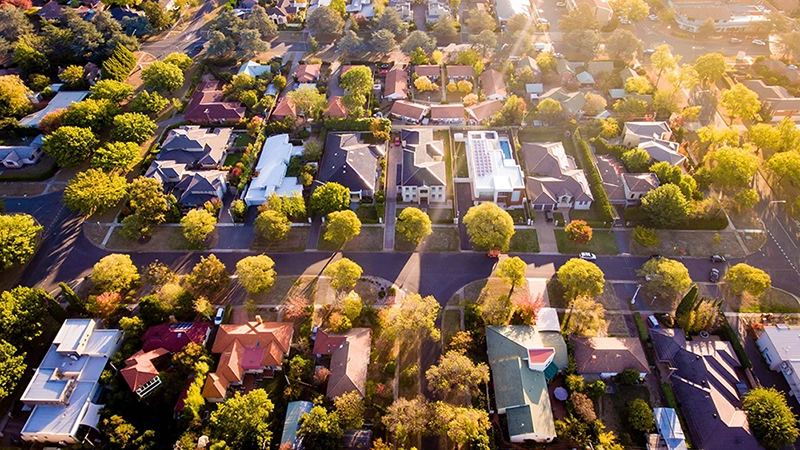Updated: 29 May, 2025
Rising interest rates affect more than just monthly repayments and the total cost of a home loan. They also reduce the borrowing power of anyone looking for a home loan. The effect is more pronounced than you might think due to serviceability buffers.
A serviceability buffer is a number lenders add to the interest rate on offer when you apply for a home loan, to see if you would continue to be able to make repayments if interest rates went up. Last October, the Australian Prudential Regulation Authority, which gives the banks guidelines for the buffer rate, said it expected lenders to increase the minimum serviceability buffer from 2.5% to 3%.
This means that if you apply for a home loan with a 2.5% interest rate, the bank will calculate your repayments as if the interest rate were 5.5% – previously, it would have been just 5% – when deciding whether to approve you for the loan. Let’s take a look at how much this will affect what people can borrow.
How Much Will My Borrowing Power Fall?
The amount a lender is willing to let you borrow for a home loan is your borrowing power, sometimes called your borrowing capacity. It depends on several variables: income, assets, liabilities, debts, credit history, deposit amount, the property’s value – and the serviceability buffer.
When the Reserve Bank raises the cash rate, banks pass that increase on to lenders. That raises the interest rate for those on variable-rate home loans. For those applying for a home loan, it raises the serviceability buffer. We’ve done the calculations on how a 0.5 percentage-point hike affects your borrowing power:
Borrowing Power With Serviceability Buffer At 2.5% and 3%
| Yearly Income | Interest Rate | Borrowing Power (with buffer rate of 2.5%) | Borrowing Power (with buffer rate of 3%) |
|---|---|---|---|
| 50,000 | 3% | $282,700 | $270,100 |
| 80,000 | 3% | $443,800 | $424,100 |
| 100,000 | 3% | $543,400 | $519,300 |
| 150,000 | 3% | $799,400 | $763,900 |
| 200,000 | 3% | $1,067,700 | $1,020,300 |
*Calculations are based on income only. You can use our borrowing power calculator to input your own data.
This table shows that if the buffer rate climbed from 2.5% to 3%, a person earning $100,000 would have a $24,100 reduction in their borrowing capacity. A person making $150,000 would experience a decrease of $35,500, while a person making $200,000 would see a reduction of $47,400.
What This Means For You
- The increase in the interest rate buffer applies to all new borrowers.
- Investors are likely to be more affected by a higher serviceability buffer than owner-occupiers. This is because investors typically borrow with higher degrees of leverage and may already have debt (to which the buffer would also be applied).
- Most first-home buyers can’t afford a large deposit, this means increases in serviceability buffers will affect them more because they will need to borrow at or near their capacity to afford a home.
- Understanding your borrowing capacity can help you determine your monthly payments and the kinds of properties you can afford, preventing you from wasting time looking for a house that is out of your price range.
How to increase home loan borrowing power
- Here are 10 helpful suggestions to boost your ability to borrow for a mortgage:
- Lower your credit-card limits.
- Close unsecured debts, including personal loans, car loans and HECS debt.
- Reduce your living costs for three to six months before applying for a mortgage.
- Request a longer loan term for your mortgage.
- Consider a fixed-rate mortgage because you can be assessed at a cheaper rate.
- Switch to an interest-only repayment plan.
- Apply to a lender whose loan criteria favour your income and employment situation.
- Split your expenses with your partner.
- Consolidate unsecured debts into your existing mortgage to increase your home loan borrowing power.
- Stay updated on your credit report and keep it as clean as possible.
Let Our Brokers Help You Get The Best Deal
A mortgage broker can help you get your home loan approved by calculating your borrowing capacity. If you already have a home loan, our brokers will assist you with refinancing to a lender that offers lower interest rates by comparing lenders and finding the best deal for you.
We’re here to help. To speak with a mortgage broker right away, call us at 1300 889 743 or submit a free online enquiry.









